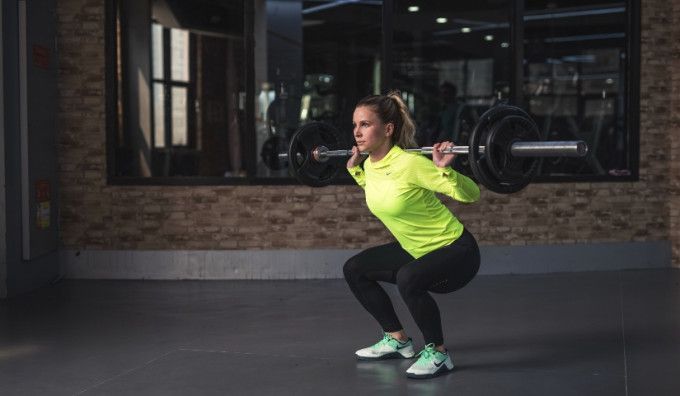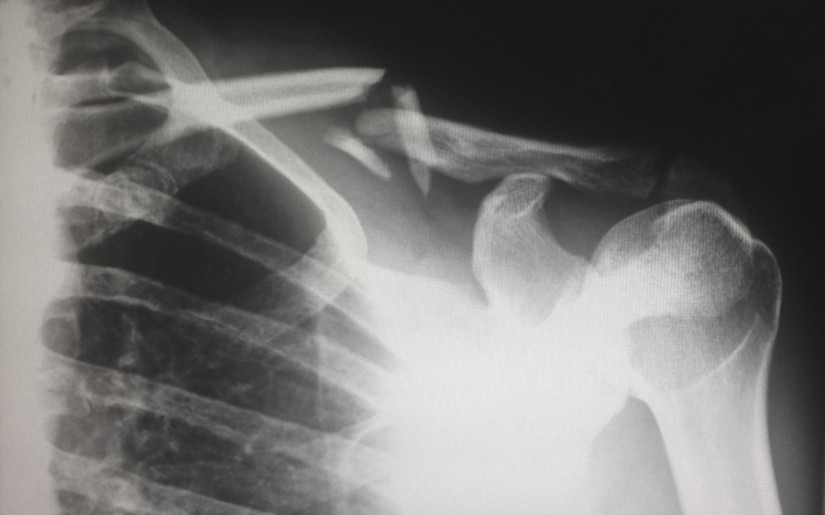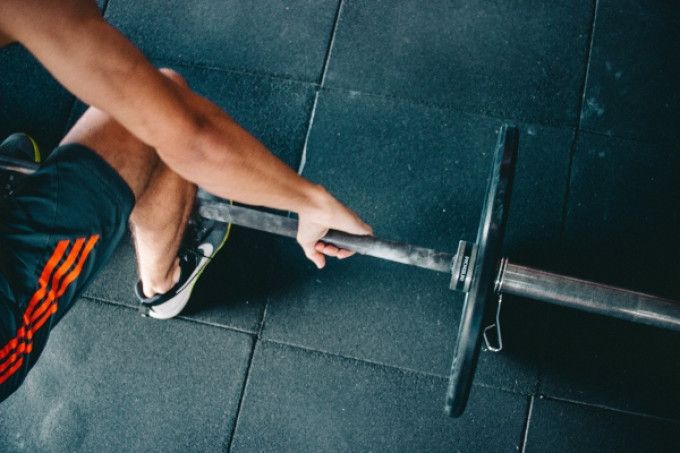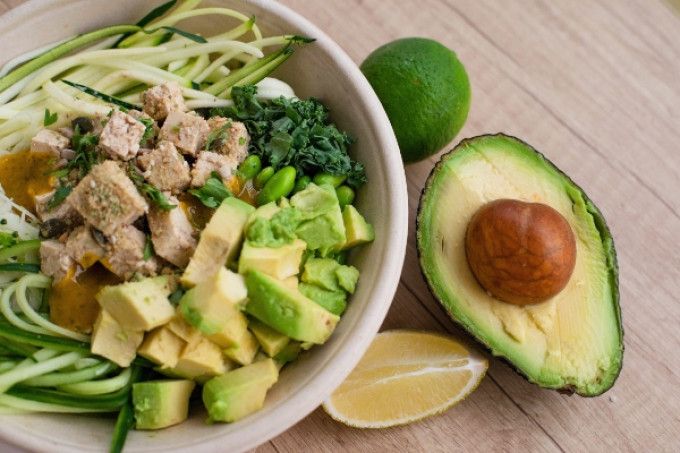
Prevent Osteoporosis: Keep Your Bones Strong & Healthy
By Panasha Desai, Pharmacist (GPhC 2071387)
Keeping bones strong and healthy should be a top priority. Bones are one of the fundamental parts of our body and something we think of as being exceptionally strong. But without the proper care and attention, bones can become brittle, leading to breakages and a host of other knock-on conditions.
We explain what your body needs to keep your bones in top condition, how to avoid osteoporosis, support your body and protect yourself from the weakening of your bones through your diet and supplements.
What Are Bones Made Of?

Our bones hold us together, they are, essentially, the structural framework of the whole body. Bones are light, yet strong, mineralised tissues forming part of a sophisticated system of levers, allowing us to move around with ease.
Bones are living tissue made up of proteins, minerals and vitamins. Bone consists of 70% minerals, such as calcium, and 30% collagen. The collagen and mineral components are responsible for the major functional characteristics of bone.
Collagen is often overlooked as a vital organic aspect of bone, which gives it it’s flexible strength, whereas the mineral components ensures bones are rigid and have a weight-bearing strength. When there is a lack of collagen and essential minerals our bones can become overly flexible, and brittle.
Causes Of Change And Dysfunction In Our Bones

The mineral content of our bones is measured as Bone Mineral Density (BMD). Lower levels leave the bone more vulnerable to fractures and bone conditions such as osteopenia, which can then develop to osteoporosis.
The collagen content directly affects BMD, so when it is reduced, the mechanisms and structural strength of the bone are affected. The synthesis process of collagen can be impaired however, by exposure to toxins, through our environment, smoking, infection, poor diet, high levels of stress or lack of exercise.
What Is Osteoporosis?
Osteoporosis is a weakening of the bones so that they become brittle. It is most often found in people who are over 20 years of age who are not getting enough of the right vitamins to ensure the strength of their bones. It is also more common in older people and women, particularly those who have early menopause or who have had a hysterectomy.
During our peak growth years, you accumulate a “bone bank” which allows you to grow bigger and stronger bones with age by using the bone tissue in your bank – formed from calcium, vitamin D and other nutrients. However, people who don’t accumulate enough during their formative years may find their bank too low later in life (from 30s onwards), meaning their bodies are either lacking in the nutrients needed to maintain strong bones or don’t have enough bone tissue in the bank to protect their bones. Either of these can lead to osteoporosis.
More Calcium Isn’t Always Better For Bones
We know calcium as one of the most important nutrients for healthy bones. However, balance is key as you can have too much as well as too little calcium.
Our body works hard to regulate calcium for this reason. Levels that are too high can cause the body to compensate by increasing the urinary output to bring the calcium levels back down. When calcium levels are too low, perhaps due to poor diet or taking calcium depleting medications, the body may leach calcium already present within the bones to help increase and maintain calcium levels.
How To Prevent Osteoporosis?

Keeping your bones strong throughout your life is about maintaining the right levels of vitamins, minerals and staying physically active. Preventing osteoporosis is a continual process and these tips should help you to keep your bones strong.
Have A Well Rounded Diet
A typical Western diet, high in processed food, caffeine and sugar, poor quality meat, and low in vegetables or an excessively high protein diet, can create an acidic environment, which can leach calcium from bones, affecting BMD. We refer to these dietary factors as types of calcium wasting factors.
Dairy products can be a good source of bone supporting nutrients. However, it is important that it is good quality and organic, and not consumed in excess. If you’re avoiding dairy/lactose, due to an allergy/intolerance or vegan diet for example, there are plenty of other good, if not better sources of calcium: sardines, sesame seeds, collard greens, spinach, kale, swiss chard, broccoli and tofu.
Ensuring that you’re having enough protein in your diet is another essential factor for collagen especially. High quality meats, nuts, seeds, wholefood protein powders, pulses and vegetables are all excellent sources.
Avoid Low Levels Of Physical Activity
Exercise is very important for healthy bones, as applying pressure to the bone through movement and exercise stimulates osteoblast activity – the cells that build bone. Therefore, low levels of exercise and leading a sedentary lifestyle are associated with lower BMD. On the other hand, the impact of too much exercise can also be a risk factor, such as long distance running or competitive cycling, so make sure you have a good balance.
Watch Out For Inflammation
When you think about conditions such as osteoporosis, an overlooked risk factor is inflammation, with research showing that it may, in part, be an inflammatory condition. Inflammation has a negative impact on our bones e.g. autoimmune diseases can be a predictive factor for bone loss. A common cause of inflammation nowadays is chronically high cortisol levels (our stress hormone).
Reduce Stress!
Having a healthy work/life balance, taking up hobbies, yoga, meditation or deep breathing exercises can all be supportive. Making sure you are getting enough sleep can also reduce stress and help to balance blood sugar levels, which have a direct impact on bone mineral density.
Gentle regular exercise is also important for stress relief and for healthy bone density. Resistance exercise in particular is useful such as using ankle weights during the day for constant gentle exercise, or using a trampoline once a day. These are easy and excellent ways to put gentle pressure on your bones.
Be Aware Of Hormone Changes (Like Menopause)
Bones and our hormones are very much connected in the body. Hormones, in particular oestrogen and in part androgens such as testosterone, play a key role in growth and reproduction and are involved in bone formation and resorption (the process by which it is reabsorbed into the body). A clear example is during the menopause, when oestrogen levels typically fall, the levels of osteoblasts reduce, disrupting healthy bone formation and BMD.
Minimise Exposure To Pollutants & Toxins
Exposure to toxins can affect collagen and hormone levels. Examples include non-organic cosmetics/toiletries and exposure to pollutants from transport or cigarette smoke. Poor quality diet low in antioxidants such as vitamin C can further affect our body’s ability to protect collagen.
Eat Probiotic Foods
Including gut loving foods in your diet is really useful for preventing osteoporosis. Prebiotic foods e.g. leeks, onions and garlic or probiotic foods e.g sauerkraut and kefir, can help to keep your gut in check. Last but not least, organic bone broth is excellent as a source of proteins, collagen and other minerals to support your bone health.
Vitamin & Mineral Supplements For Bone Strength

It is important that we have sufficient intake of all the nutrients we need for healthy bones, such as the raw materials mentioned previously including calcium, magnesium, boron, silicon (present in the herb horsetail), vitamin K and D.
Supplementation can be a good way to ensure your body has sufficient levels of bone and collagen loving nutrients. You can consider taking vitamin and mineral supplements to ensure you get the right amounts, but we always recommend you speak to a nutritionist before starting on supplements – as you may be able to alter your diet for some nutrients.
Vitamin D
Adequate vitamin D levels are vital for the normal metabolism and absorption of calcium from the gut which maintains healthy calcium levels in the bone. It’s also essential for the activity of osteoblasts, which are the cells within the bone involved in mineralisation.
Vitamin K2
Vitamin K2 is a contributing factor for the enzymes and amino acids involved in BMD. While vitamin D helps to support calcium absorption in the gut, vitamin K2 works in synergy to help to mineralise calcium in bone. We mentioned earlier that gut bacteria play a key role in vitamin K absorption, therefore, taking a high quality of live bacteria supplements can be really supportive.
Deficiency of vitamin K is associated with low bone protein levels, low vitamin D levels and osteopenia. Interestingly, vitamin K levels can be affected by poor digestion, as our gut bacteria play an important role in vitamin K metabolism.
Calcium
When supplementing with calcium, remember to make sure you always provide necessary factors for its absorption and metabolism: vitamin K, D and magnesium. Choose a well absorbed calcium such as calcium citrate, which is gentle on the digestive system. As we mentioned, all minerals are equally important for BMD.
Collagen
In cases of collagen, look for the hydrolysed form in a supplement, particularly for inflammation, cartilage and overall joint health.
Healthy Body, Healthy Bones
It might seem like there is a lot to consider when trying to maintain a healthy body with strong bones. But work these vitamins and minerals into your diet, stay active and watch out for warning signs of change in your bone strength and you’ll stay strong for a long time to come. If you are considering taking one or more supplements to support bone health, and especially if you think you could be at risk of osteoporosis, then you should consult your doctor or nutritionist before starting.
Read more about vitamins, minerals and their functions in the body, within your diet and as supplements.
This post was updated: 2nd October 2019
Disclaimer
The products offered are not intended to diagnose, treat, cure, or prevent any illness or disease, or to replace the advice of a medical professional. Results are not guaranteed and may vary from individual to individual.




